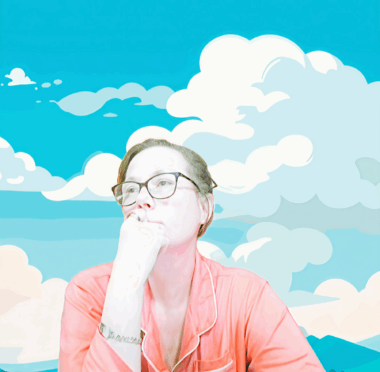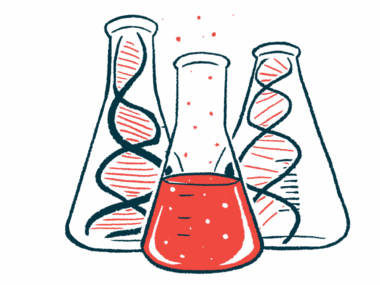My delayed PH diagnosis reveals a lesson in claiming victory over loss
I wonder what could've been had I refused to accept 'no' as an answer
Written by |

Philosopher George Santayana famously said, “Those who cannot remember the past are condemned to repeat it.” This means that if we don’t learn from our mistakes and the mistakes of others, we may continue to make poor choices. But if we use our failures as opportunities for growth, we claim victory over loss.
For as long as I can remember, I’ve struggled with breathing difficulties. I’ve always wanted a diagnosis — something that could be treated — but I’ve occasionally stopped seeking help over the years. Sometimes I wonder what might’ve happened if I’d never stopped.
When I first spoke up about my breathing issues, I was about 8 years old. I told my mom that something was wrong, but she brushed it off. As an active child who appeared physically healthy, she didn’t think that I might be experiencing a serious problem.
Nevertheless, I knew something was amiss, so I sought advice from a man who knew everything there was to know about health: my second-grade gym teacher. And lo and behold, he knew what was wrong! He confidently declared that I had the bends. I had no idea what that was, but since he didn’t seem concerned, I figured it would all go away.
Satisfied with my gym teacher’s indifference, I brushed aside my need to stop and catch my breath, telling others, “I have the bends.” I stopped asking for help.
By sixth grade, I played baseball, basketball, and volleyball and ran track. But I could only manage a 100-meter sprint. I was fast, but my breathing issues limited me from extended runs. At that point, I realized that teachers don’t always have the answers, and my second-grade gym teacher wasn’t as educated as I’d thought.

(Graphic by Jolie Lizana)
So I brought up my breathing difficulties to my coaches, my doctor, and my mom, but no one took action. Externally, I was the picture of health — why would anyone believe that something was wrong with me? I thought that telling them would’ve been some indication, right? But as a child, I was unheard, and eventually, I just gave up.
In my 20s, my breathing problems worsened. My doctor referred me to one specialist after another. I underwent a stress test, also called a cardiopulmonary test, to check my heart, which was incredibly challenging. My muscles were fine, but breathlessness caused me distress. Just when I felt like giving up, the treadmill slowed to a halt. The results came back normal, but no one was in the room while I was testing. I was gasping for air, which helped maintain my oxygen saturation.
Looking back, I wonder if the results would’ve been normal had the nurse noticed how difficult the test was for me.
I moved on to the next specialist. This doctor wanted to perform an upper and lower GI series — an X-ray examination of the gastrointestinal tract — but, at 22, I wasn’t prepared for it. “They aren’t going up there!” I thought. “Yuck!” I was done. I’d effectively stopped asking for help.
In my late 20s, I decided to take charge of my health and focus on strengthening my lungs. I walked and then ran 4 to 6 miles every day, becoming the healthiest I’d ever been.
At 31, I sought help from my doctor once more for my breathing issues. I went from one specialist to the next for six years. I ended up in the emergency room, unable to sit up and breathe, which led to my diagnosis of pulmonary hypertension and severe heart failure.
Hard-fought lessons
Previously, I’d stopped asking for help — in other words, advocating — because I felt dismissed and thought the tests being ordered were irrelevant. (Most of them were.) However, each time I withdrew, I had to restart from square one, and I failed to learn an important lesson.
I often wonder, if I hadn’t let history repeat itself, if I hadn’t accepted no answer as an answer, and if I hadn’t given up on myself, could I have received a diagnosis before my heart was damaged beyond repair?
We’re often advised not to think negatively, yet no one ever told me that recalling negative experiences can help to break the rinse-and-repeat cycles of doom. No one said to me that we can claim victory over loss. Now, though, I’m learning to embrace Santayana’s philosophy.
While we shouldn’t dwell on our sorrows, we must acknowledge our failures, recall them for our benefit, and share them with others so that they can forge a better path forward. There can be a win in every loss, although we must actively claim the victory.
Note: Pulmonary Hypertension News is strictly a news and information website about the disease. It does not provide medical advice, diagnosis, or treatment. This content is not intended to be a substitute for professional medical advice, diagnosis, or treatment. Always seek the advice of your physician or other qualified health provider with any questions you may have regarding a medical condition. Never disregard professional medical advice or delay in seeking it because of something you have read on this website. The opinions expressed in this column are not those of Pulmonary Hypertension News or its parent company, Bionews, and are intended to spark discussion about issues pertaining to pulmonary hypertension.





Leave a comment
Fill in the required fields to post. Your email address will not be published.